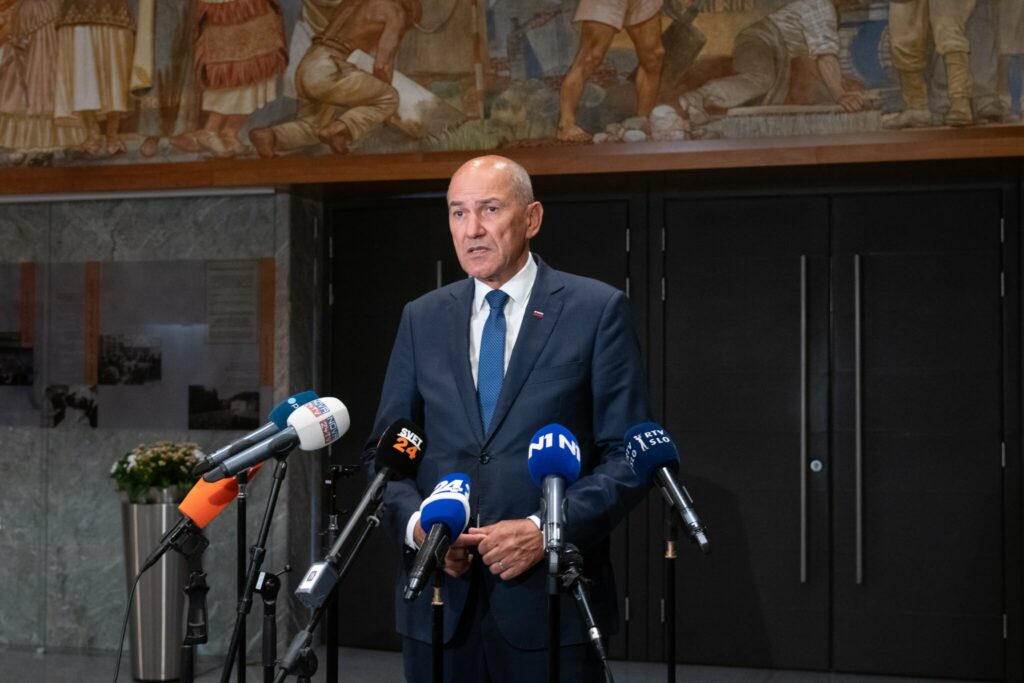Slovenia, and with it, part of the European Union, is about to be hit by a huge wave of migrants. This is also reinforced by the actions Russia is launching in some African countries as part of its special war, through the Wagner network and many other activities. The authorities of some countries had already warned of a hot migrant autumn at the beginning of the summer. This is why the representative of the Slovenian Democratic Party (Slovenska demokratska stranka – SDS) had already proposed at the meeting of the National Security Council on the 19th of July 2023 that the Council should also consider the information on the increased pressure of illegal migration and propose appropriate measures in due time. However, this proposal by the SDS party was arrogantly rejected at the meeting, wrote Janez Janša in a post on the X social network.
At the beginning of the September session of the National Assembly, the Prime Minister, Dr Robert Golob, demonstrated similar ignorance in public. What was even more striking was the great emptiness of the solutions offered by the government. Since Slovenia is far from being the first or the only country to face a migrant wave (and it is not about to face it for the first time either), the solutions are not exactly rocket science, according to Janez Janša.
The only thing that is new is the fact that the Schengen border has moved south of us – to Croatia, and that today, unlike when the migrant wave 1.0 hit us in 2015, Slovenia has measures at its disposal that were only available back then in neighbouring Austria, for example. All indications are that neighbouring Italy, with the help of the European Union or on its own, will at least partially stop the migrant tide and move it away from its shores in the coming weeks, and pressure on the so-called “Balkan route” will thus further intensify. The SDS party therefore advises the government of the Republic of Slovenia not to underestimate the situation any longer, but to get on with the job for which it was set up and paid.
The sensible steps include the following:
- An urgent meeting with those responsible in the Croatian government to demand a halt to illegal arrivals across the European Union’s external and Schengen borders, while at the same time offering assistance in terms of men and equipment to help secure the border.
- An urgent meeting with those responsible in the governments of all those EU Member States affected by the Balkan migrant wave to organise a strong border force to help the Republic of Croatia secure the EU’s external borders. A similar, highly effective action has been carried out to secure the border of North Macedonia. Many EU Member States are ready to help immediately.
- The immediate establishment of a permanent police presence and permanent police surveillance on those parts of the border with the Republic of Croatia where the number of illegal crossings is highest. Slovenia is a sovereign state. Slovenia does not border any “dangerous” country and is therefore not obliged to offer asylum to those entering illegally from safe countries. With Croatia’s entry into the Schengen area, Slovenia has sufficient resources left in “reserve” to ensure both the territorial sovereignty of the country and the safety of the people along the border and beyond.
- In case of non-responsiveness of the neighbouring countries, the temporary reintroduction of border controls on the entire border with the Republic of Croatia, with the intention of full control and restriction of crossings for all non-EU citizens.
- Through a proactive policy in Brussels, obtaining co-financing of the proposed measures from European Union sources.
The SDS party therefore proposes that an urgent meeting of the National Security Council be convened immediately to address, at least belatedly, both migration and the broader security situation in the country. “We are concerned about the data on the huge increase in crime in the vicinity of migrant centres and elsewhere. In some parts of the country, where the police response has been poor, citizens at risk are even organising themselves into village guards to protect their property. At the same time, they continue to pay taxes, which should be used by the government to fund effective security for all,” Janša also wrote.
A. G.


